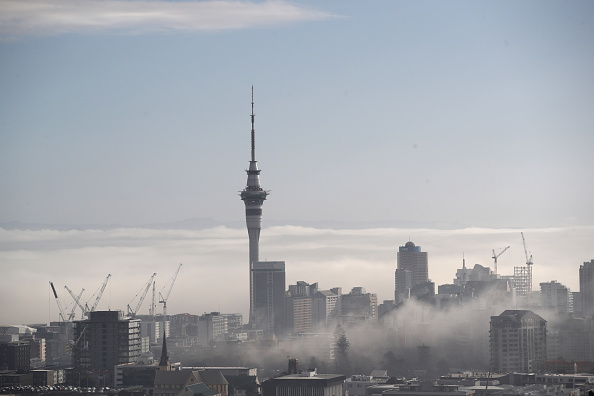A billion-dollar package to help tackle the climate crisis will be delivered under Mayor Phil Goff’s final proposal for the Annual Budget 2022/2023, released this week.
If adopted by Auckland Council’s Governing Body this month, the Climate Action Budget will enable $600 million of new investment in bus services, including 10 new frequent bus routes in the south, west and east of the city, an extension to the frequent service on the Northern Express up to Hibiscus Coast Station, and improvements to nearly 70 existing bus routes region wide.
Hundreds of millions of dollars more will also go towards six to seven new electric and low-emissions ferries, 79 new electric buses or hydrogen buses, completing key links in the city’s cycling network, delivering 35km of improved footpaths and pedestrian crossings to improve walkability, and planting thousands of 1m-1.5m native trees in predominantly low-income areas with low canopy coverage.
Mayor Goff says the Climate Action Budget is an essential starting point to ensure Auckland can meet its climate obligations and leave a positive legacy for future generations.
“In 2019, Auckland Council voted unanimously to declare a Climate Emergency, and the following year we ambitiously adopted Te Tāruke-ā-Tāwhiri: Auckland’s Climate Plan. While we have made progress since then, including allocating $152 million to climate initiatives in our 10-year Budget, Auckland is not remotely on track to reaching our target of halving emissions by 2030,” he says.
“The Climate Action Budget gives effect to our Climate Emergency declaration and subsequent climate plan by guaranteeing ringfenced funding to cut emissions, including a more than half-billion-dollar boost to deliver new and more frequent bus services across the region.
“This will mean an extra 170,000 Aucklanders – 10 per cent of the population – will live within 500 metres of a frequent bus route. With over 40 per cent of Auckland’s emissions coming from transport, the fastest and most effective way to reduce emissions is by encouraging mode shift to public transport and active modes.
“Other changes, including accelerating the phasing out of the diesel ferry fleet, which contributes 21 per cent of the emissions from public transport, and building 18 kilometres of safe cycle facilities that will fill critical gaps in the current network, will also help to cut our emissions and provide more and better transport choices for our communities.”
In addition to major investments in public transport, the Climate Action Budget will build on the success of the Mayor’s Million Trees programme by injecting a further $13.3 million into tree planting activities across Auckland, predominantly in low-income areas where canopy coverage is low.
“We will plant thousands of 1m-1.5m native trees on streets, in parks and in road reserves, providing more green space in areas that need it most, particularly in the south of our city,” says Mayor Goff.
The proposed package will be funded by a Climate Action Targeted Rate (CATR), directly generating $574 million over 10 years and seeking to leverage a further $482 million in co-funding from central government and other sources. For a person with a median-value home worth more than $1 million, the CATR will represent a contribution of around $1.12 per week.
“This small contribution will provide significant benefits to all Aucklanders by reducing emissions and pollution, easing congestion, and making the city a greener, more sustainable place to live,” Mayor Goff says.



